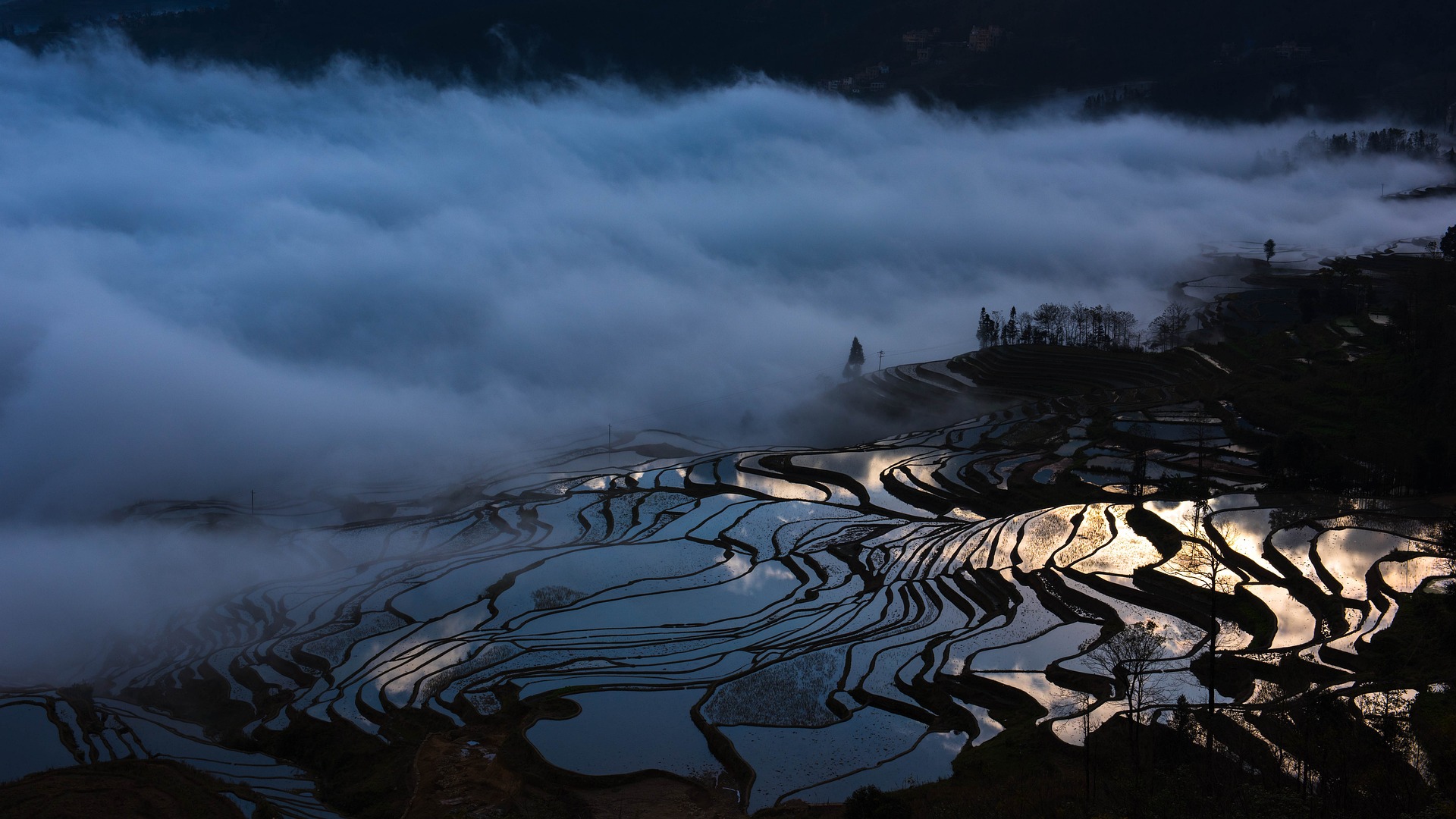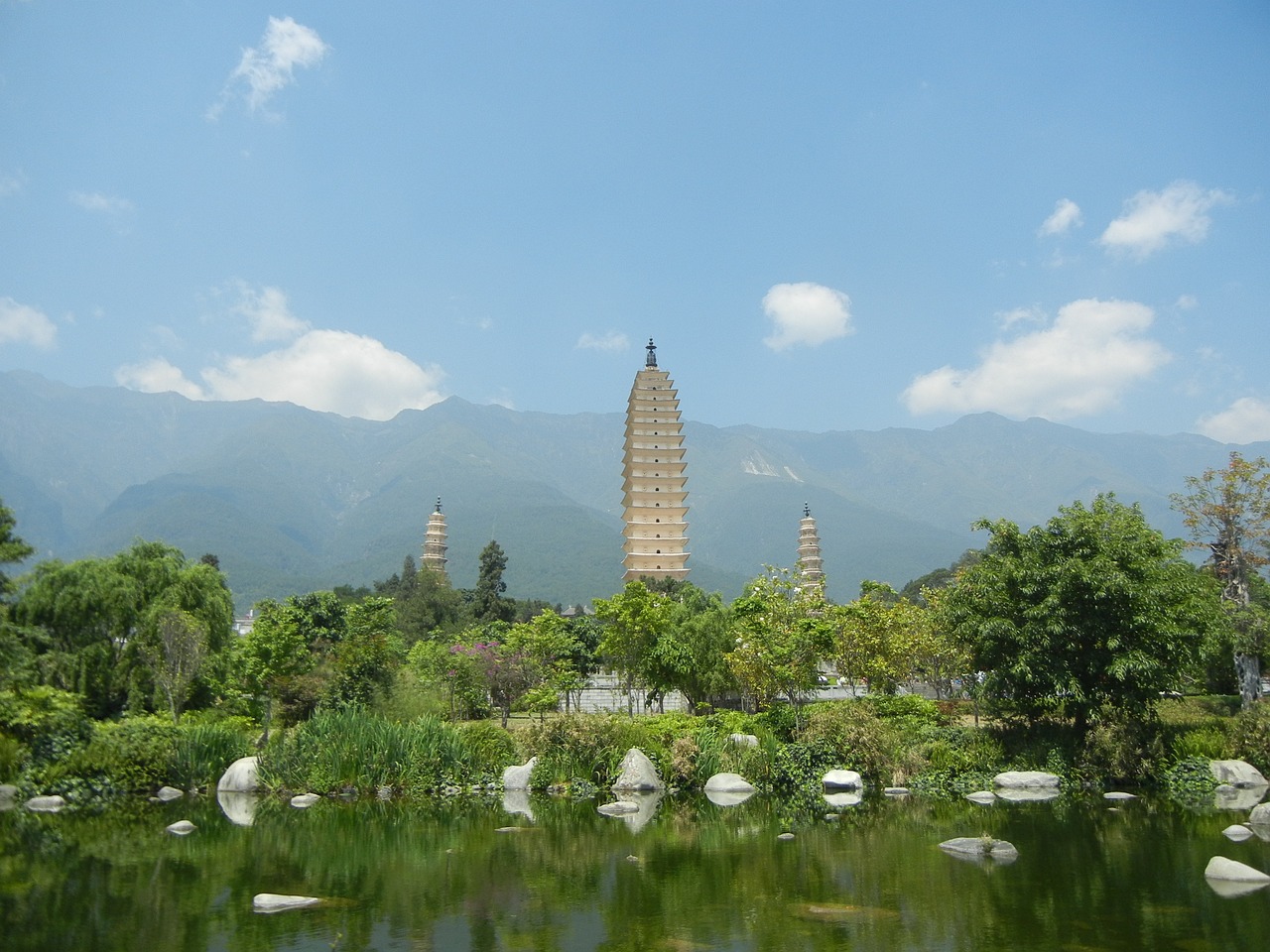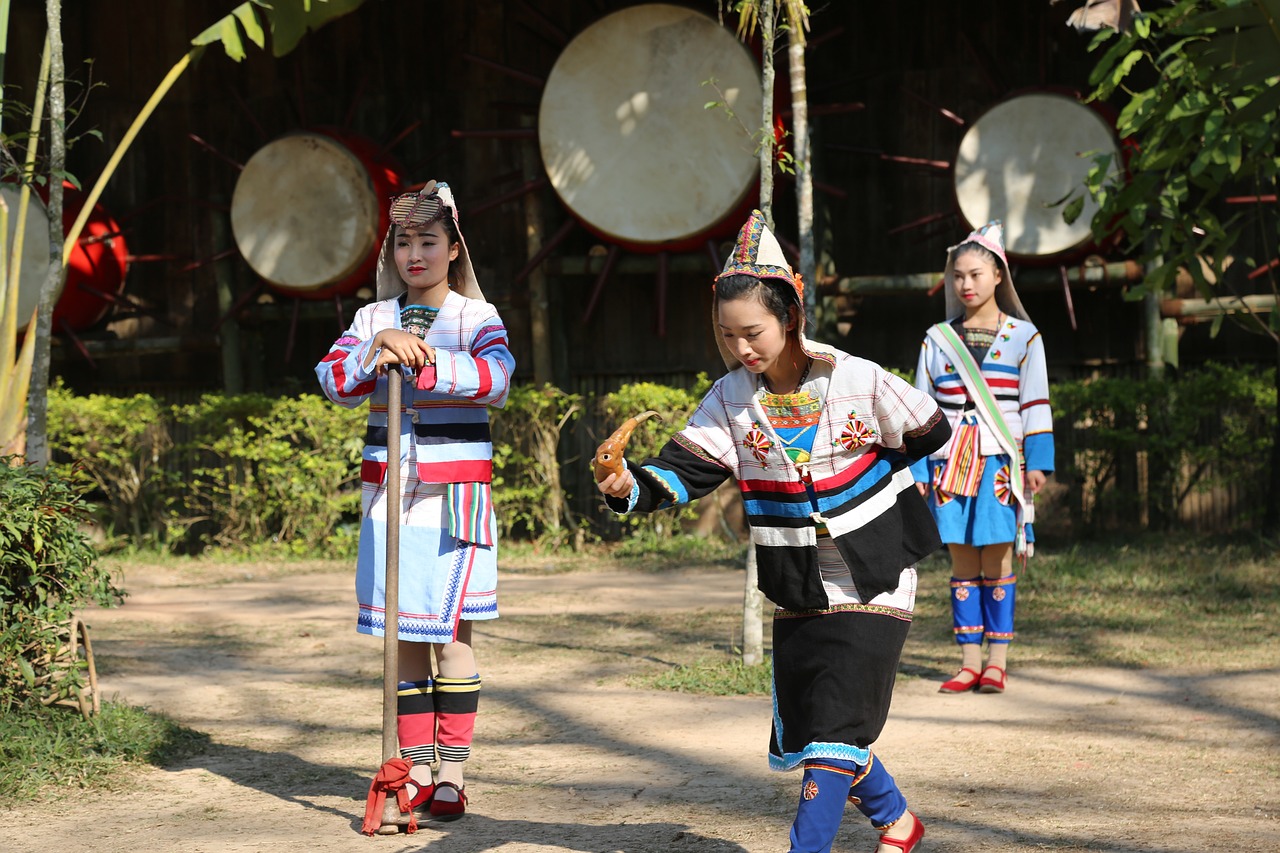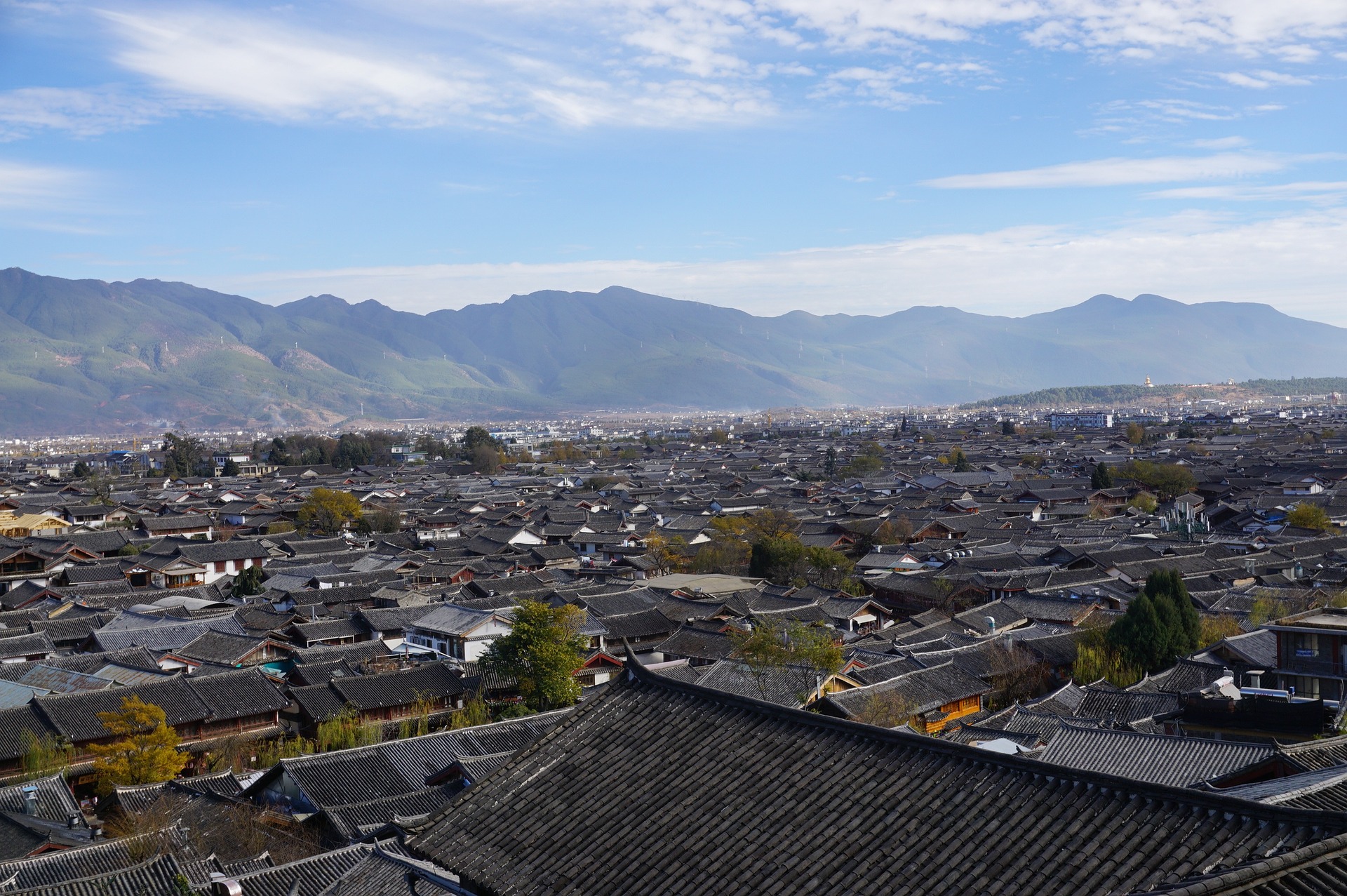Yunnan: A captivating blend of diverse landscapes and cultures
Yunnan is a captivating and diverse province in southwestern China, renowned for its natural beauty, ethnic diversity, and unique cultural heritage. Here you can enjoy diverse landscapes, ranging from snow-capped mountains to lush forests, pristine lakes, deep gorges, and terraced rice fields, such as Tiger Leaping Gorge, Jade Dragon Snow Mountain, and the Yuanyang Rice Terraces, but also explore unique ethnic cultures because the province is home to 25 ethnic groups. Each group has its own customs, traditions, festivals, and attire. Yunnan boasts several well-preserved ancient towns and cities, such as Lijiang, Dali, and Shaxi. These places offer a glimpse into China's ancient past with their historic architecture, narrow cobblestone streets, and traditional culture.
While Yunnan has become increasingly popular, especially among domestic travelers, it still offers plenty of opportunities to explore off-the-beaten-path destinations and enjoy a more authentic and tranquil travel experience.

Yuanyang Rice Terraces
Location and Transportation
Yunnan is situated in the southwest of China, and it shares borders with the following regions:
Sichuan Province to the north;
Guizhou Province to the east;
Guangxi Zhuang Autonomous Region to the southeast;
Tibet Autonomous Region to the northwest;
Myanmar (Burma) to the west;
Laos to the south
Vietnam to the southeast
Yunnan has a well-developed transportation network that allows visitors to travel to and within the province efficiently. Major cities and attractions are well-connected by various means of transportation:
Air: Yunnan has several major airports, with Kunming Changshui International Airport being the main gateway. Kunming Airport has numerous domestic and international flights, connecting Yunnan to major Chinese cities and some international destinations.
Train: Yunnan is accessible by train from various parts of China. The main railway lines converge in Kunming, and there are direct train services to cities like Beijing, Shanghai, Guangzhou, Chengdu, and many others.
Highways: Yunnan has an extensive network of highways and expressways, making road travel convenient. Long-distance buses operate between Yunnan and neighboring provinces and major cities.
Local Transportation: Within cities, public transportation like buses and taxis are available for getting around. In tourist destinations, there are also local transportation options like tricycles or horse-drawn carriages for short trips.
Domestic Flights: Yunnan's major cities are well-connected by domestic flights, making it easy to travel between different parts of the province.
Tourist Buses: Many popular tourist destinations within Yunnan have dedicated tourist bus services that take visitors to multiple attractions in a single trip.
While traveling within Yunnan is relatively convenient, the province's size and varied terrain mean that travel times between certain destinations can be significant. It's essential to plan your itinerary accordingly to make the most of your time and fully enjoy all that Yunnan has to offer.
Climate and Weather
Yunnan Province has a diverse climate due to its varying topography, which ranges from high mountains to low valleys. The province's climate can generally be described as mild and pleasant, but it can differ significantly between different regions.
Subtropical Climate: Yunnan's southeastern regions, including cities like Jinghong and Xishuangbanna, have a subtropical climate. Summers here are hot and humid with frequent rainfall, while winters are mild and relatively dry.
Highland Climate: The northwestern part of Yunnan, including cities like Lijiang and Shangri-La, is characterized by a highland climate. The higher altitudes result in cooler temperatures, especially in the evenings and during the winter months. Summers are generally mild, and rainfall is more common in the summer and autumn.
Plateau Climate: In cities like Kunming, the capital of Yunnan, and Dali, the climate is classified as a plateau climate. Summers are mild and rainy, while winters are cool and dry. Kunming, often referred to as the "Spring City," enjoys a pleasant climate year-round, with temperatures rarely dipping below freezing.
Rainy Season: Yunnan experiences a distinct rainy season, which usually occurs from May to October. During this period, rainfall is more frequent, especially in the southern and southeastern regions. The rainy season can bring heavy showers and occasional thunderstorms.
Dry Season: The dry season in Yunnan typically spans from November to April. This period is characterized by lower humidity and less rainfall. It is considered a more favorable time for travel, particularly for outdoor activities.
Temperature Variation: Yunnan's temperature can vary significantly between day and night, especially in higher-altitude areas. Travelers should be prepared for temperature changes and pack accordingly.
Altitude Considerations: Yunnan's varying altitudes influence its climate, with higher regions being cooler than low-lying areas. Travelers to high-altitude destinations should be aware of the potential for altitude sickness and take appropriate precautions.

Lugu Lake
Due to its diverse climate, Yunnan can be an attractive destination year-round. Travelers can choose to visit different parts of the province based on their preferences for weather conditions and the activities they wish to pursue. For those seeking a milder climate, the spring and autumn months are generally the best times to visit, while summer can be ideal for exploring the highland areas. The dry season from November to April is also a popular time for travel, offering favorable weather conditions for most activities.
Attractions and Highlights
Overall, Yunnan provides a perfect blend of natural beauty, cultural richness, and adventure, making it an ideal destination for travelers seeking a unique and rewarding journey. Whether you're interested in history, nature, culture, or cuisine, Yunnan has something special to offer. Remember, Yunnan is a vast province with varied topography and weather, so it's essential to plan your trip accordingly. Whether you're interested in nature, culture, or history, Yunnan offers a wealth of experiences to satisfy every traveler. Here are some of the top things to see and experience in Yunnan Province:
Lijiang Ancient Town: This UNESCO World Heritage Site is a well-preserved ancient town with cobbled streets, traditional Naxi architecture, and a picturesque setting against a backdrop of snow-capped mountains.
Dali Old Town: Another ancient town with Bai ethnic culture influences, Dali offers charming streets, ancient buildings, and the nearby Erhai Lake, making it a delightful place to explore.

Dali
Shangri-La (Zhongdian): Known for its mystical allure and breathtaking landscapes, Shangri-La offers high-altitude beauty, including the famous Pudacuo National Park, Songzanlin Monastery, and Meili Snow Mountain.
Tiger Leaping Gorge: One of the deepest and most spectacular gorges in the world, it offers adventurous hiking trails with breathtaking views of the Jinsha River.
Yuanyang Rice Terraces: These stunning terraced fields, carved into the mountains by the Hani people, offer captivating scenery, especially during sunrise and sunset.
Stone Forest (Shilin): A unique limestone formation resembling a forest of stone pillars, it is a fascinating geological wonder.
Jade Dragon Snow Mountain: Located near Lijiang, this snow-capped mountain offers opportunities for scenic walks, cable car rides, and even some light snow activities.
Puzhehei: This lesser-known gem features stunning karst landscapes, clear lakes, and a tranquil atmosphere, perfect for relaxation and exploration.
Unique Ethnic Culture
Yunnan Province is one of the most culturally diverse regions in China, home to a multitude of ethnic groups, each with its own unique customs, traditions, and cultures. The province is inhabited by over 25 ethnic minorities, and their rich cultural heritage adds depth and charm to Yunnan's identity. Here are some of the prominent ethnic groups and their cultural aspects:
Bai: The Bai people are known for their distinctive architecture, characterized by white-walled houses with gray-tiled roofs. They have a rich musical and artistic heritage, and their festivals often feature traditional dances and performances.
Naxi: The Naxi people have a long history and unique Dongba culture, which includes a pictographic writing system and various religious rituals. The Dongba script is considered one of the world's last living pictographic languages.
Yi: The Yi people have a vibrant culture, with colorful traditional costumes adorned with elaborate embroidery and silver accessories. They have their own unique customs, festivals, and shamanistic beliefs.
Dai: The Dai people are known for their Theravada Buddhist traditions, and their Water Splashing Festival, celebrated during the New Year, involves joyful water-related activities to wash away bad luck.
Tibetan: While Yunnan has a smaller Tibetan population compared to Tibet Autonomous Region, Tibetan culture is still present in certain areas like Shangri-La (Zhongdian). The Songzanlin Monastery in Shangri-La is an important religious site for Tibetan Buddhists.

Dai people in Xishuangbanna
These are just a few examples of the many ethnic groups in Yunnan, each contributing to the province's cultural tapestry. Visitors have the opportunity to experience various ethnic festivals, sample diverse cuisines, observe traditional crafts, and witness the colorful attire of these ethnic communities, making Yunnan a culturally enriching destination.
Yunnan Cuisine
Yunnan cuisine is a delicious and diverse culinary tradition that hails from Yunnan Province in southwestern China. It is known for its unique flavors, wide range of ingredients, and the influence of the various ethnic groups that call the region home. Yunnan's cuisine is considered one of the most distinct and intriguing in China. Here are some highlights of Yunnan cuisine:
Crossing the Bridge Noodles (过桥米线): Perhaps the most famous Yunnan dish, this noodle soup features a large bowl of hot broth served with thinly sliced raw meat, vegetables, and various condiments. Diners add the ingredients to the broth, cooking them as they go, and then mix them with rice noodles to create a hearty and satisfying meal.
Steam Pot Chicken (汽锅鸡): This dish is a Yunnan classic, featuring tender chicken cooked with various spices and herbs in a special steam pot. The result is a flavorful and aromatic chicken dish that is popular among both locals and visitors.
Erkuai (饵块): Erkuai is a type of rice cake made from steamed rice. It is sliced and stir-fried with various ingredients such as meat, vegetables, and spices to create a simple yet satisfying dish.
Rose-Petal Rice Cake (玫瑰糕): This sweet and fragrant dessert is made from rice flour and rose petals, creating a delicate and aromatic treat.
Yunnan Mushroom Dishes: Yunnan is known for its abundant and diverse mushrooms, and they are often incorporated into various dishes, providing unique flavors and textures.

Explore Yunnan with Us
Embark on a mesmerizing journey through the enchanting landscapes and vibrant cultures of Yunnan with our exceptional Yunnan tours and services. Discover the unparalleled beauty of snow-capped mountains, lush rice terraces, and picturesque ancient towns. Immerse yourself in the rich tapestry of ethnic diversity as you encounter the traditions and customs of the Bai, Naxi, Yi, Dai, and other fascinating ethnic groups. Indulge in the delights of Yunnan cuisine, savoring famous dishes like "Crossing the Bridge Noodles" and experiencing the unique flavors of this culinary paradise. Our expertly crafted itineraries cater to every traveler, whether you seek adventure in the Tiger Leaping Gorge or serenity in the tranquil landscapes of Puzhehei. With our professional guides and seamless logistics, you can rest assured of a safe, comfortable, and unforgettable journey through Yunnan's wonders. Let us be your gateway to an extraordinary and culturally enriching experience in the heart of China's most captivating province. Book your Yunnan tour with us today and create cherished memories that will last a lifetime.
Start Now